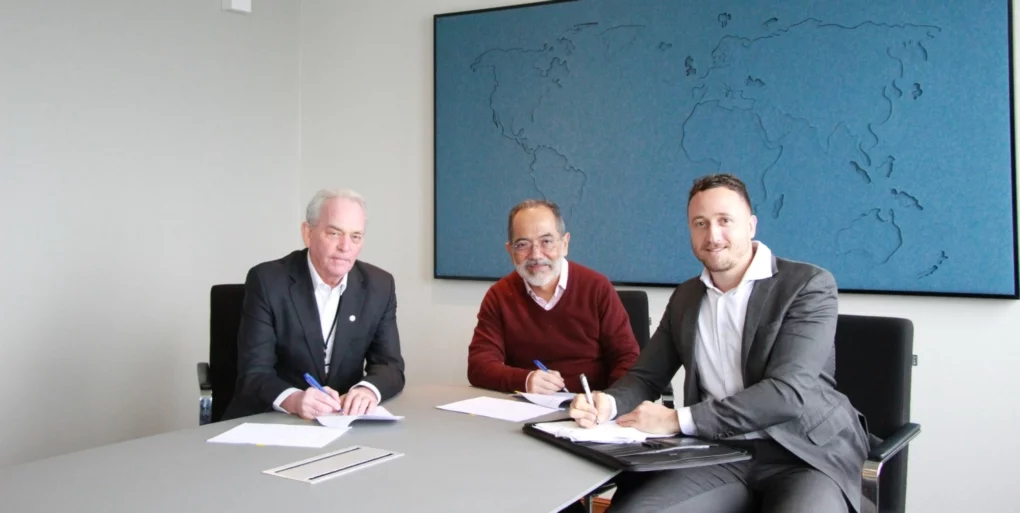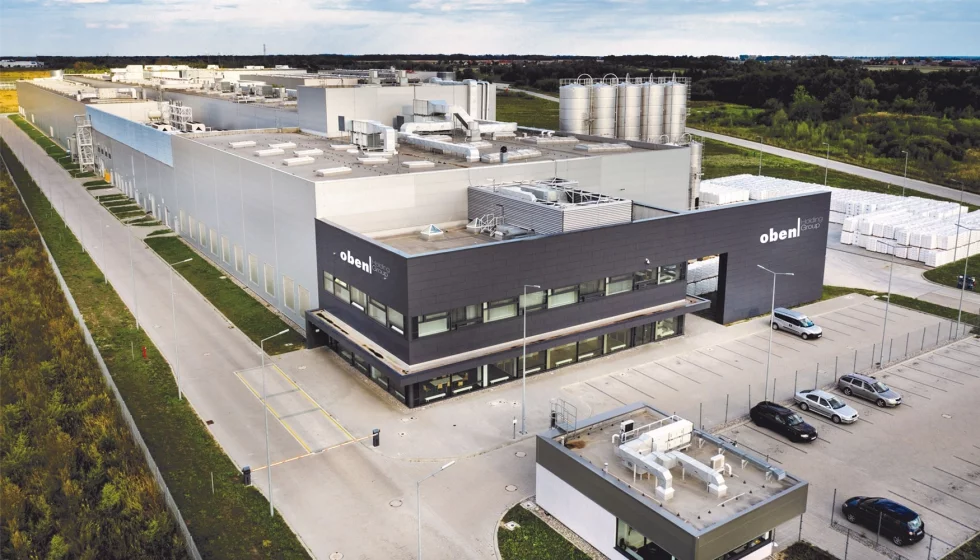Powering sustainable operations in Lima and Barranquilla
NORWAY – Bergen Engines is pleased to announce that it has recently been awarded contracts by Oben Group Holdings to supply base-load CHP power solutions to facilities in Lima, Peru and Barranquilla, Colombia.
Oben chose the Bergen solutions for their superior efficiency, through-life cost and environmental benefits.
Erik Sosa, Technical Director, Oben Group Holdings:
“We look forward to working closely with Bergen Engines to implement these cogeneration engines. Energy is one of the most important cost drivers in our sector and we need to maintain our competitiveness, while generating the lowest carbon footprint possible. We expect to achieve more than 80% energy efficiency with these systems, one of the highest in the industry”.
The expansion will see the installation of 2 x 9MW B35:40V20 power plants at Oben’s manufacturing plants in Lima, Peru, and Barranquilla, Colombia. These green-field sites will utilize Bergen’s innovative technology to operate in base load cogeneration, a testament to both companies’ commitment to sustainable energy practices.
Cogeneration, also known as Combined Heat and Power (CHP), is a core application for Bergen Engines. This innovative technology generates reliable base load electricity whilst utilising waste heat.
Theo Lorentzos, Head of Sales, Americas:
“We are delighted that Oben Group have entrusted us with their power expansion needs in both Colombia and Perú when compared with other solutions.”
Installation, commissioning and service support for the power plants will be provided by Bergen’s service center in Querétaro, Mexico.
The Querétaro location represents the latest addition to Bergen’s global service network, ensuring seamless operations and customer satisfaction across Latin America.
“Over the past five years, we have experienced remarkable growth in the Latin American region, with contracts signed in Guatemala, Colombia, Peru, Honduras, in addition to our established fleet in Mexico,” said Aldrich Richter, Managing Director, Bergen Engines, LATAM.

Left to right: Olav Inge Søreide, Bergen Engines Head of Operations, alongside Erik Sosa, Technical Director of Oben Holdings Group, and Theodore Lorentzos, Head of Sales Americas at Bergen Engines.
About Oben Holdings Group
Headquartered in Lima, Peru, Oben Group Holdings has been a prominent producer of propylene, polyester, and nylon films for flexible packaging for over three decades. Today the family-owned group has 14 manufacturing plants and operates within 17 countries, employing around 2,500 people across the Americas and Europe.
About Bergen Engines
Bergen Engines builds medium-speed liquid and gas fueled engines and generating sets at its headquarters and manufacturing facilities near Bergen, in Norway, providing a broad range of marine and land-based power solutions, worldwide.
Originally founded in 1855, Bergen Engines is a watchword for quality and reliability in its field. The company built its first engine in 1946 and has since commissioned over 7,500 of its iconic medium-speed engines. Around half of them are still in operation today – such is the quality and reliability of a “Bergen” engine.
Today the Bergen Engines group has subsidiaries across Europe, the Americas and the Indian sub-continent and employs around 900 people worldwide.
From 1999 Bergen Engines was a subsidiary of the British aerospace and defense group, Rolls-Royce plc.
Since 2022, Bergen Engines has been part of the British engineering and industrial group, Langley Holdings plc Power Solutions Division, together with the Italian motor and generator producer, Marelli Motori Srl; and German power stabilisation and backup specialist, Piller Group GmbH.
Note to editors:
Key Advantages of CHP:
Increased Efficiency. CHP systems can achieve higher efficiency, often exceeding 80%, compared to conventional power plants.
Energy Cost Savings. By using waste heat for heating the plant, water on site, or industrial processes, CHP can reduce the overall energy consumption and costs for a facility.
Grid Resilience. CHP systems can provide backup power during grid outages or disruptions, enhancing the resilience of critical facilities and reducing the risk of downtime.
Environmental Benefits. CHP systems can reduce greenhouse gas emissions and air pollution because of their improved energy efficiency and the use of cleaner energy sources, leading to a lower carbon footprint.



